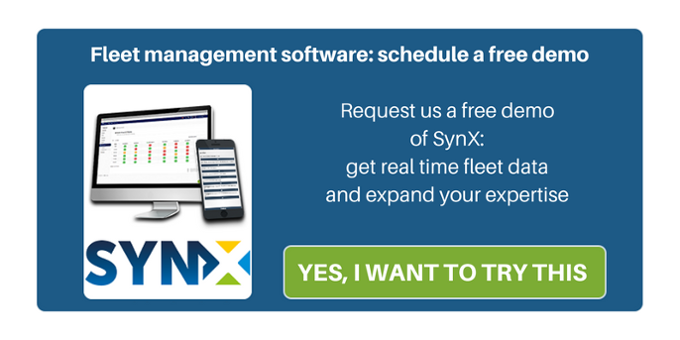
Managing a fleet—something we talk about every single day—is (or at least seems to be) all about overseeing the operation of vehicles to carry out tasks vital for a company. In order for these tasks to be completed with a positive outcome, fleet managers, or anyone responsible for the vehicles, are involved in a wide range of functions, from fleet maintenance to safety, from driver training to fuel management just to mention a few.
Despite a fleet being so integral to a company, and key to the development of the organisation, it is still often considered something completely separate from the business activity. The decisions made in this area directly impact the health of a business which depends very much on the success of a fleet operation. If a fleet is run efficiently, the company will necessarily be more efficient, too—and vice versa.
Though this might still not be clear to you, with this post we try to make some observations of how some fleet traits should be aligned with your company goals and how it will impact the wellbeing of your business as a whole (and not just the fleet activity itself!)
1 - Vehicle choice and company mission: the type of vehicle you choose for your company fleet should be consistent not only with the duties it is going to perform, but also with the company objectives and image. This does not mean that certain types of vehicles should be chosen to merely impress but, much more importantly, should be able to complete the kind of work that needs to be done in order to fulfil the company objectives; they should be taken care of properly for safety and compliance sake and offer a positive point of reference to other fleets.
2 - Fleet management and company missions: the goals of your fleet should be aligned with your business goals. The striving of fleet managers to fulfil responsibilities such as driver productivity, safety, accident management and so on should be goal-oriented and connected to the overall mission. The success of the fleet is just a part of the global success—global success is possible only with successful fleet management.
3 - Fleet management and customer service: if companies have a customer service that is responsive and efficient in dealing with problems as they crop up—of paramount importance is the way they are managed and solved—the internal relationship between company members and the fleet should adopt a similar practice. Fleet managers should establish a cooperative, working relationship with all internal corporate functions associated with fleet operations. Senior management needs to be kept informed about fleet performance, budget requirements, new products and programs which, along with their bearing on fleet management operations, should be maintained. If the ‘internal customer’ is satisfied and happy, the external one will likely follow suit.
4 - Fleet improvement and company improvement. Fleet managers not only monitor the working activity of fleet vehicles and related aspects, but also implement innovative initiatives to drive operational costs down and improve efficiencies. The fleet manager is seen as the in-house expert on all matters dealing with fleet management, and is backed by management in general as the fleet is viewed as a critical revenue-generating component of a company's business plan.


